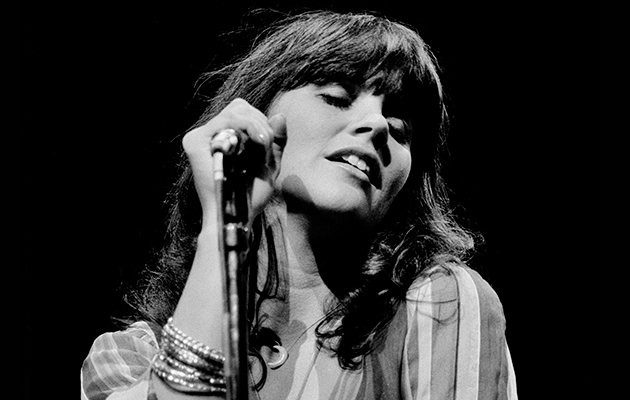Originally published in Uncut's November 2015 issue (Take 222). Words: Tom Pinnock "I really was terrible in the beginning,” laughs Linda Ronstadt. “I had no idea what I was doing. It wasn’t until about 1980 that I really started to learn how to sing.” While the millions of fans who repeat...
Heart Like A Wheel
Capitol, 1974
With new producer Peter Asher refining her sound, Ronstadt hits the big time, winning a Grammy Award and a No 1 spot for both the album and its first single, “You’re No Good”.
One of the things I really liked about Peter was that he understood that song, “Heart Like A Wheel” [written by Anna McGarrigle]. Everybody I played it for before said, “Oh, it’s not commercial,” or, “It’s too corny.” I just thought it was a gorgeous song and I wanted to perform it so much. I covered “Willin’” by Lowell George here, too. The first time I ever saw Lowell perform I just fell on the floor. I was knocked out. But I wanted to know what tuning he’d written the song in, so I could learn it. It was open G, but that wasn’t good for my voice, so he came over to my house and showed me how to play it in open E tuning. Yeah, I had a private guitar lesson with Lowell! This album was a big hit, but it was different from the way it is now, when everybody’s on Twitter, and they have a huge gaggle of paparazzi running after them. It meant that I got a somewhat nicer house. By that time, the scene at The Troubadour had wound down so we didn’t see each other’s concerts as much. Life got a little bit more isolated then. It became a little bit more difficult to go to the market and shop because people would say, “Sign your autograph,” while I was trying to buy chicken. So I’d get a person to go to the market for me. Around this time, I performed a lot of songs by JD Souther. JD is such a good writer. I mean, he was just my boyfriend at the time and I thought his songs were good, but I really see now what an extraordinarily high-quality writer he is and how important he has been on the scene and to the Eagles’ music.
______________________________
Simple Dreams
Asylum, 1977
As punk peaked, Ronstadt was covering Roy Orbison on her huge eighth album, knocking Rumours off the US top spot in the process.
We were in our own little dream at this time. I remember JD Souther and Jackson Browne came out to my house and Jackson taught me “Poor Pitiful Me”, ’cos he was producing Warren Zevon at that time. That’s what we were doing in those days, you’d go to somebody’s house and you’d get the guitars out right away. You’d start to play something and someone else would add a harmony, and it would just go on for hours. Sometimes we’d stop and get something to eat, but not very often. And that’s how we got our songs around, that’s how I found songs, that’s how writers got their songs recorded, just playing in somebody’s living room. Warren Zevon never came to my house, though. I didn’t know him very well, he was incredibly shy. He was a heavy drinker so he hardly lifted his eyes off the floor. But JD and Jackson were close to him, and I just loved his songs. I’ve always wished I’d recorded “Accidentally Like A Martyr”; I just feel like it was a great opportunity I missed. I was intimidated by it at the time, and I loved the way he’d recorded it and I didn’t think I could beat it, but I think I could’ve if I’d worked at it. This knocked Rumours off the top? I didn’t know that. What an amazing band – Stevie’s such a good singer, and so is Lindsey Buckingham, and Christine McVie.
______________________________
What’s New
Asylum, 1983
Ronstadt rejects life as a stadium pop act, teaming up with Sinatra’s arranger Nelson Riddle for an album of ornate jazz and swing standards.
I wanted to find different ranges that I always knew were there in my voice, but that I wasn’t getting to access with rock’n’roll. I didn’t like playing those huge arenas. I went to Joe Papp at The Public Theater in New York, not realising that there was a huge line of people begging him for a job, and said, “I’d like to come and play.” He must have thought I was an idiot. Just by coincidence, they were doing Pirates Of Penzance and the director wanted to do it with pop singers, not classical. I sang Pirates for a year on Broadway and then we did the movie, then I went back and sang La Bohème at The Public Theater. I went to a dinner at [Atlantic A&R] Jerry Wexler’s house, and he’d say, “You wanna sing standards, you could really sing ’em.” I loved those things, been listening to them since I was a kid. Next thing I knew we were recording in a studio, but the way Jerry produced was very different to what I was used to. I didn’t think the arrangements suited my voice. I wanted to redo it, but the record company said it would be the end of my career because I’d been out of action for a year already on Broadway. So I made [1982’s] Get Closer, but I was still thinking about those Sinatra songs. As soon as Peter Asher heard the quality of Nelson Riddle’s arrangements he was convinced. Nelson was at the top of his talent when he wrote my charts. His string-quartet arrangement of “My Funny Valentine” is my favourite of any I’ve ever heard.



